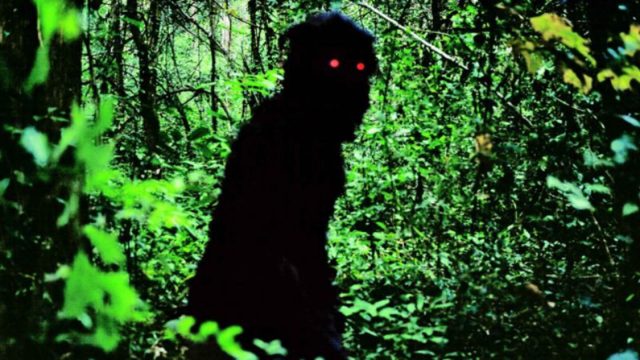Criterion Prediction #196: Uncle Boonmee Who Can Recall His Past Lives, by Alexander Miller

Title: Uncle Boonmee Who Can Recall His Past Lives
Year: 2010
Director: Apichatpong Weerasethakul
Cast: Sakda Kaewbuadee, Jenjira Pongpas, Thanapat Saisaymar, Natthakarn Aphaiwonk, Geerasak Kulhong
Synopsis: Living in the countryside, an aging Boonmee, struggling with kidney failure, is visited by two unlikely visitors; the ghost of his dead wife and an apparition of his son who disappeared years prior.
Critique: A few weeks ago I had the chance to watch Uncle Boonmee Who Can Recall His Past Lives. It was oddly early, that time in the morning when there’s no traffic, the light is just peeking through the curtains and everyone else is still in a slumber. Of course, there’s no such thing as a wrong time to watch an Apichatpong movie but it’s hard to picture a better time than the early morning. It’s as if the period of transition and discernible air of peace is in harmony with the tone of Apichatpong’s aesthetic. He casually strolls between the dimensions of the living and spirit world. Ancient kings converse with mortals, reincarnated souls walk about with relative ease and the people they encounter are hardly roused. Just as casually, Apichatpong can sculpt ethereal narratives evoking national mythology, earthy symbolism and political policies unique to Thailand. Most importantly, it’s all intrinsically tied to the natural world. Less political than Cemetery of Splendour, more thematically grounded than Mysterious Object at Noon, Uncle Boonmee Who Can Recall His Past Lives is leisurely ambitious. Measured compositions patiently capture the tranquility of nature with the same approach to mise en scene, characters and blocking. Uncle Boonmee Who Can Recall His Past Lives bears immediate creative authorship but there’s enough room to credit Sayombhu Mukdeeprom’s decisively controlled camerawork, which has the meditative temperament of Ozu and yet a curious air of discovery that permeates the story’s aerial backbone.
Next to Lav Diaz, Nikolaus Geyrhalter and Wang Bing, Apichatpong is assigned the reductive “slow cinema” moniker. How can you hurry the immersive compendium of spiritual mythology, religious iconography, and earthy symbolism? There’s such a richly textured connection to the natural world that the only way to appreciate the film’s roomy structure is to fall under its spell. Uncle Boonmee Who Can Recall His Past Lives touches on the perils of aging and loss when the titular character encounters the ghost of his wife and thought-to-be-lost son; even this revelation is handled with a disarming repose.
These encounters have a celebratory quality. The afterlife isn’t to be feared but welcomed. Even the scene where Boonmee’s son appears in the form of a lumbering, red-eyed primate and his presence is initially frightening (anyone familiar with the movie won’t forget the image that adorns most of the press material/cover art) shapes the expected reaction of fear and underlines the contrast regarding our preoccupation with ghosts. Just as much a measured character study as it is an adventure yarn with suggestions of a modern ghost story, Uncle Boonmee Who Can Recall His Past Lives operates on a celestial level that carries you to an achingly beautiful summit with the amassing presence of luminescent caves and cascading waterfalls. It’s this meditative treatment that’s emblematic of Apichatpong’s assured serenity, making him one of the most original voices in contemporary cinema.
Why It Belongs in the Collection: There was reason to celebrate when the Criterion Collection announced Apichatpong’s arrival with Mysterious Object at Noon in the second volume of Martin Scorsese’s World Cinema Project Collection. Also, with the passing of Filmstruck and the appearance of the Criterion Channel, Apichatpong’s work is prominently featured. Alongside Uncle Boonmee Who Can Recall His Past Lives, there’s Cemetery of Splendour (CP #135), Tropical Malady and Syndromes and a Century. Another hint that Apichatpong’s work could be in queue for a spine number is the change in visual quality. The difference between the transfer of Uncle Boonmee Who Can Recall Past Lives when it was on Fandor compared to how great it looks now seems like night and day. If they have the rights to clean it and stream it, why not release it?





























The title was misleading: Boonmee never recalled any past lives!
Right??? Thought I was the only one who found that bothersome !!